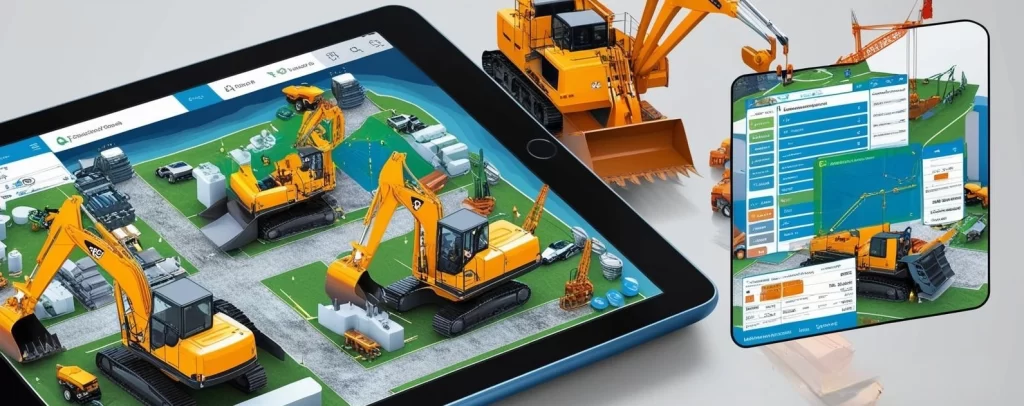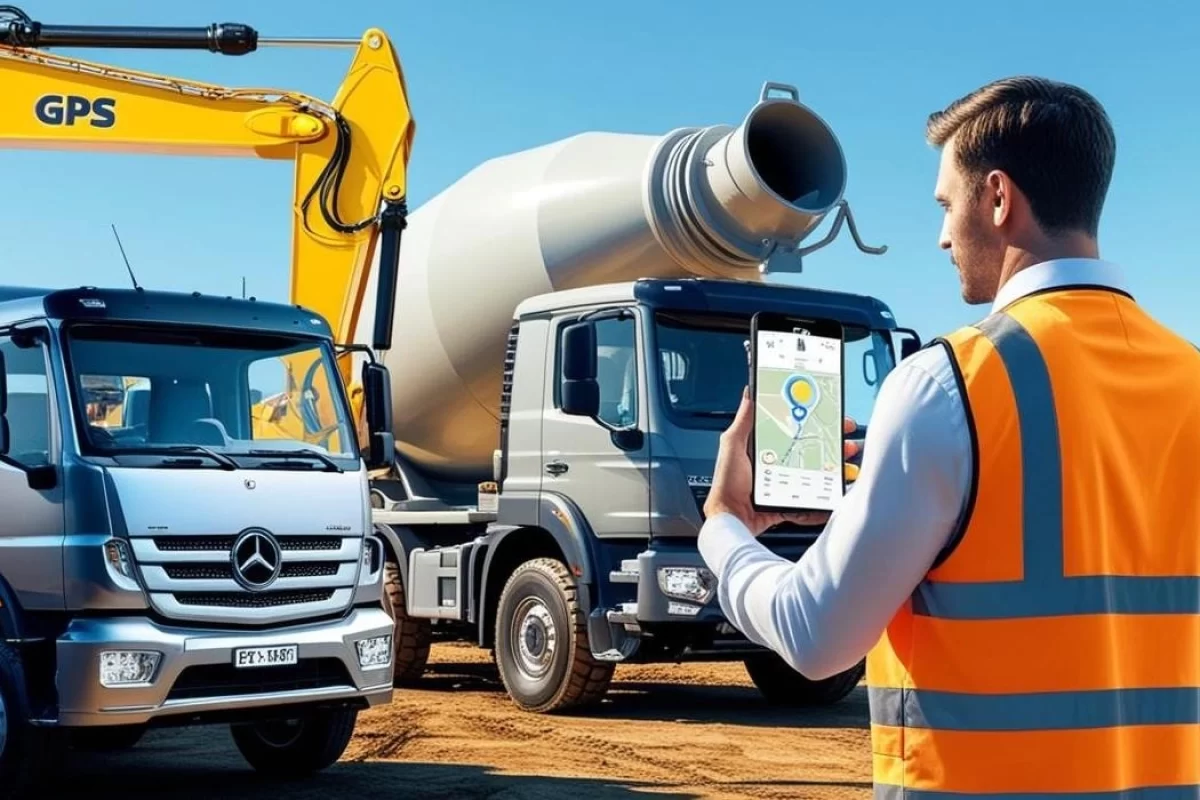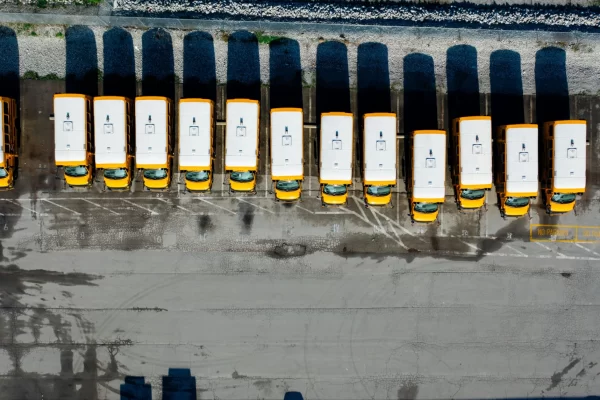Global Positioning System (GPS) technology has been used in the construction industry since its early application in surveying and mapping in the 1990s. Over the years, as GPS technology has advanced, it has become quite an essential instrument for construction companies. A GPS tracker is a great tool today for site monitoring, fleet management, asset tracking and improving overall project productivity.
GPS technology has revolutionized the building construction sector, enhancing production, safety, and productivity. GPS provides organizations with the ability to track their employees, machines, and assets in real time. This capability augments decision-making, lowers costs, and refines project delivery.
Benefits of Using GPS in Construction
1. Improved Asset Tracking and Management
By tracking equipment, vehicles, and personnel in real time, construction companies can ensure their assets are in the right place at the right time.
It improves asset utilization by helping avoid underuse or overuse of machinery, protecting the company’s investment. This helps minimize the risk of theft by providing tracking data in real-time, as well as immediate notification when equipment moves outside planned zones.
2. Enhanced Safety and Security on Construction Sites
GPS technology enhances site safety by allowing managers to track workers and equipment in real-time, ensuring adherence to safety procedures and helping to prevent dangerous situations.
Real-time location tracking also enables immediate response to emergencies, allowing for faster intervention in the event of accidents or medical incidents.
Geofencing adds an extra layer of security by sending alerts when assets enter or exit designated zones, helping to prevent unauthorized access or equipment movement. This level of oversight promotes accountability and compliance with safety regulations by ensuring personnel remain in designated areas and follow established guidelines.
Additionally, digital tracking of personnel and equipment helps minimize liability and reduces the risk of litigation by providing clear records of movements and actions on-site.
3. Increased Productivity and Efficiency
GPS technology streamlines workflows by reducing delays, dispatching equipment more efficiently, minimizing idle time, and accelerating task completion.
It also monitors equipment performance and maintenance schedules, helping prevent unexpected breakdowns and ensuring machines remain in peak condition. Real-time data on equipment availability, workforce mobilization, and site progress supports more than accurate project scheduling and better time and cost management.
Additionally, it enhances collaboration among teams by keeping workers, machinery, and materials aligned for optimal productivity. With real-time analytics, managers can generate more accurate reports and make informed decisions, proactively adjusting schedules and resources as needed.
Asset Management

Construction Equipment Tracking
A GPS tracking solution can monitor your heavy equipment, vehicles, and specific tools at all times. You can extend the lifetime of your assets, by analyzing the state of the equipment and how often it has been used.
Avoiding project delays due to lost or stolen tools is made easy by GPS tracking data. It makes it easy to find and recover them and prevents misuse of the machines. For example, by using alerts if the machine is operated outside working hours.
Equipment Location and Maintenance
Real-time tracking helps you know where your equipment is, prevent misplacement, and reduce the risk of theft. It manages and maintains an extensive history of use and maintenance for regulatory compliance purposes.
Also, maintenance scheduling based on GPS automates service reminders, minimizes downtimes, keeps vehicles in good condition, and avoids costly breakdowns.
Construction Fleet Management
GPS solutions optimize fleet utilization by providing real-time updates on vehicle locations and conditions, ensuring efficient dispatch and coordination.
It optimizes routes to lower the amount of travel and time spent idling, thereby reducing fuel expenses. By monitoring utilization and run hours, it can help businesses run operations more efficiently while reducing excessive fuel consumption.
Aside from fuel consumption, it also provides driver safety—it tracks for speeding, rapid deceleration, and other driving characteristics, promoting better behavior behind the wheel.
Utilizing it in your business can improve overall operational efficiency by uniting GPS data with fleet management software, allowing better planning and execution.
Construction Site Management
How GPS Enhances Construction Site Oversight
- Streamlines daily task monitoring– Keeps an eye on the daily tasks on site, assisting the managers in saving time by minimizing the project timeline via addressing the issues causing a slowdown.
- Optimizes coordination– Helps coordinate workers, equipment, and materials efficiently, ensuring everything is ready when needed.
- Enhances Safety Compliance- overall site security are secured by tracking the movement of assets.
- Enhances team communication– by providing real-time updates on the job site progress, it improves team collaboration between different teams. Thus, reducing delays and misunderstandings.
Advanced Tools and Features

Data Analytics and Reporting
GPS-based tracking generates valuable data for optimizing construction projects and operations by identifying inefficiencies and areas for improvement.
Predictive analytics can forecast equipment maintenance needs, reducing the likelihood of unexpected failures.
Insights then from reports help improve efficiency, reduce costs, and enhance decision-making by providing accurate historical and real-time data.
Integration with Existing Systems
GPS tracking technology can be integrated with accounting, payroll, and project management software, ensuring smooth workflows and data sharing.
This streamlines operations by reducing manual tracking and enhancing communication between construction teams.
By then, it enhances project cost control by tracking expenses related to fuel consumption, labor hours, and equipment usage.
Implementing GPS Tracking in Your Construction Business
Best Practices for Implementation
- Identify specific GPS tracking needs and project goals to ensure the right solution is chosen.
- Select a GPS solution tailored to your business requirements and budget, considering scalability for future growth.
- Ensure seamless integration with existing business processes to avoid disruptions and maximize efficiency.
Choosing the Right GPS Solution
- Consider factors such as cost, features, scalability, and vendor reputation to ensure long-term benefits.
- Read user reviews, seek referrals, and request demonstrations before finalizing a solution to avoid compatibility issues.
- Look for a provider that offers strong customer support and ongoing software updates to keep up with industry advancements.
Training Your Team for GPS Adoption
- Provide comprehensive training on how to use GPS tracking software and tools effectively to ensure proper utilization.
- Establish clear policies and procedures to ensure compliance and consistency among employees.
- Encourage a culture of accountability and reward efficient usage of GPS technology to drive adoption and engagement.
Overcoming Challenges and Concerns
Addressing Common Challenges
Some construction companies could face concerns over cost, implementation complexity, and employee resistance.
Through providing proper training and demonstrating the benefits of GPS can alleviate these concerns and encourage acceptance.
By working with a reliable GPS provider that offers strong customer support, you can address technical challenges.
Legal and Ethical Considerations
- Ensure GPS tracking policies comply with data privacy regulations and labor laws to protect employee rights.
- Clearly communicate tracking policies to employees to build trust and transparency while addressing privacy concerns.
Gaining Employee Buy-in
- Highlight the benefits of GPS tracking for safety, efficiency, and job performance to gain employee support.
- Address employee concerns through open discussions and training sessions, showing how GPS benefits both the company and workers.
- Recognize and reward employees who effectively utilize GPS technology, reinforcing its value and encouraging long-term adoption.

Emerging Trends in GPS Tracking
The rise of AI, machine learning, and IoT will enhance GPS capabilities in construction, improving automation and predictive analytics.
Predictive analytics will then allow better forecasting of equipment maintenance and project planning, reducing downtime and inefficiencies.
The Long-Term Impact of GPS on Construction
GPS will continue to shape the construction industry by driving efficiency, safety, and cost savings.
Companies that leverage GPS technology effectively will maintain a competitive edge in the industry by staying ahead of operational challenges.
Final Thoughts
GPS has become an essential tool in modern construction, no longer just a nice-to-have feature. This is an important component of optimizing asset management, Fleet Tracking, site security, and productivity. Organizations using GPS solutions are capable of optimizing the performance of their resources whilst realizing considerable savings and improved safety. Construction businesses can use GPS to keep their operations streamlined, and that is only possible by overcoming the challenges and using the GPS seamlessly.
Get Started with Traxxis GPS Solutions
If you are seeking to maximize the efficiency, safety, and asset management of your construction company, Traxxis GPS Solutions has innovative GPS tracking systems to offer. Reach out to us today to find out how our innovative solutions can support optimizing the fleet, saving costs, and increasing project performance.
Visit Traxxis GPS Solutions to get started!





